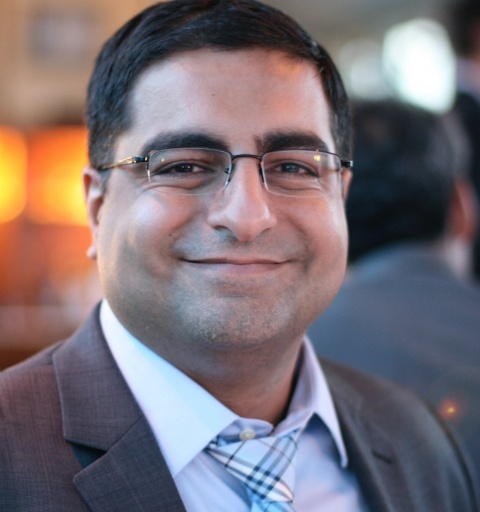Columbia College | Columbia University in the City of New York
Take Five with Hussein Rashid ’96

PHOTO COURTESY OF ALI ANSARY
What were you like when you arrived at Columbia?
I had to make a big adjustment to being a little fish in a big pond. I was like the little blue fish in the book The Rainbow Fish — I kept looking for the people with the most number of shiny scales. Eventually, I realized I needed to find the people who were willing share their shine. Those people became my people.
What do you remember about your first-year living situation?
I was on Carman 4; it was a such a great way to be introduced to college life. I got along well with my roommate and liked my suitemates. Many of my floormates helped in terms of navigating the diversity of people I would end up meeting at the College. The thing I remember most is watching late-night TV talk shows s with large numbers of the people on the floor. That was when we really talked about what was happening in the world, not just on campus.
What Core class or experience do you most remember, and why?
I have two very strong memories: The first involved a grad student instructor in Lit Hum whose name, I’m embarrassed to say, I no longer remember. She was in comparative literature, and really encouraged me to read The Tempest through the lens of Orientalism, which I was reading in a different class. I deeply appreciated how she pushed me to think deep and wide.
The other memory is from Music Hum, with Ian Bent. He began every class with a selection of music, often unrelated to the material we were going to cover that day. It was a chance to expand what we heard, like broadening our aural palette. There is no doubt that his simple act of playing that music exposed me to listening in ways that I never would have engaged with otherwise.
Did you have a favorite spot on campus, and what did you like about it?
Low Steps. That’s where you saw everyone. It’s where you met before you’d go anyplace else. It’s where you could see the beauty of the campus at any time of the year. It’s where all the protests were, so you could see people putting their education into action. Whenever I go through campus, I still hang out on those steps, just to feel the campus community again.
What, if anything, about your College experience would you do over?
I tried to go to as many talks as I could on campus, because we had so many great speakers. I always left feeling inspired and interested. I was generally pretty bad at reading further and really getting to know the issues some of these people were speaking about. I vividly remember talks by [civil rights activist] Yuri Kochiyama and [Muslim leader] Warith Deen Mohammed, but really only getting into their work after I left Columbia. We only stand on the shoulders of giants if we make the effort to climb.
More “Take Five”
- 1 of 32
- ›

